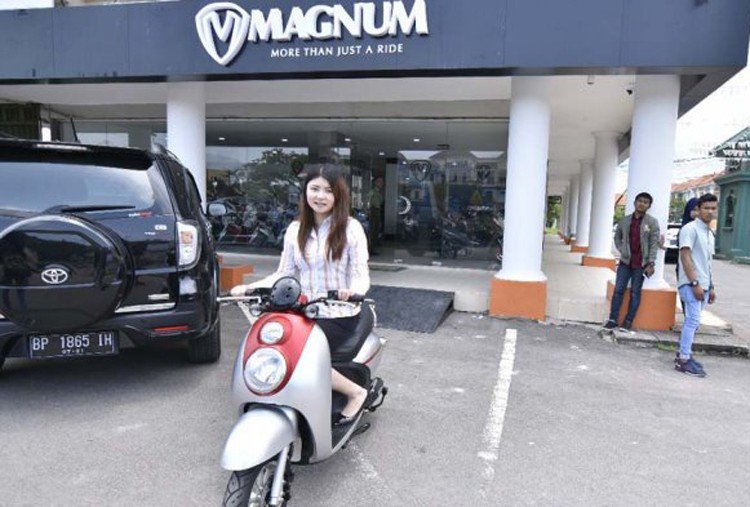Audi CEO gives up selling Ducati motorcycle brand
INGOLSTADT, Germany (Reuters) – Germany’s Audi NSUG.DE has given up selling its Italian motorcycle brand Ducati, its chief executive Rupert Stadler said, in a sign of confidence that the manufacturer expects to be able to bear the costs of its transformation.
The logo of Italian motorcycle manufacturer Ducati is seen in Dietlikon, Switzerland October 11, 2016. REUTERS/Arnd Wiegmann
Measures to cut costs by 10 billion euros ($11.8 billion), cut red tape and deepen ties with other Volkswagen owners VOWG_p.DE The Porsche brand is “gradually increasing our financial and organizational leeway for strategic realignment,” chief executive Rupert Stadler told reporters.
So there is no economic need to sell Ducati, Stadler said. Volkswagen asked banks to assess options for Ducati and transmission maker Renk earlier this year as they seek to become more nimble in their transition to electric and self-driving cars in the wake of its car fraud scandal. diesel emissions.
“I can assure you that Ducati belongs to the Audi family,” said Stadler. “Ducati is the perfect implementation of our premium philosophy in the motorcycling world.”
Plans were already stalled this summer when powerful VW unions, backed by the ruling Porsche-Piech families, argued against the logic and need to sell assets given the group’s financial resilience.
Investors and potential Ducati buyers, however, expect VW to change its mind again and possibly decide to sell the asset they believe is of least strategic importance to VW.
“For Volkswagen’s powerful works council, this could be an easy bargaining chip to push through something completely different,” said a person familiar with the matter.
Investors have long favored divestments to simplify VW Group’s structure and strengthen its management’s ability to push through structural changes against the will of unions.
Audi, which owns Ducati and Italian supercar maker Lamborghini, reported higher operating profit and revenue for the first nine months last month, helped by growth in auto demand in higher-margin markets. high in Western Europe and the United States.
While pushing the costly shift to zero-emissions and autonomous technologies, retaining the profitable Ducati division and the lucrative Lamborghini brand has become more important, Stadler said.
“Caring for a high-end bouquet is as difficult as a gardener’s job,” Stadler said. “Therefore, I’m happy with every new flower, every promising new branch,” he added, predicting Lamborghini’s sales would double thanks to its new sport utility vehicle.
Separately, Stadler said Audi will spend almost half a billion euros over the next eight years to train staff for the digital age, with steps to develop and hire experts such as designers of automotive applications and automotive robotics specialists.
To contain costs, Audi wants to keep its workforce stable, at least for the next 2-3 years, even though it plans to have more than 20 electrified vehicles on the market by 2025 and to move into services. digitized mobility, said the CEO.
With two-thirds of Audi’s roughly 60 models by 2025 still slated to be combustion-engine cars, tighter carbon dioxide (CO2) rules will pose the ‘greatest risk’ in years to come , he said, adding that Audi would face 1 billion euros. fines if the average CO2 emissions of its fleet do not exceed EU limits by more than eleven grams per kilometre.
Audi has revised its whistleblower system to make it easier for national and international staff to report illegal behavior and has set up a permanent investigation office.
Audi plans early next year to disband a task force set up to monitor patches for 850,000 diesel-powered cars that the automaker said in July needed updates with engine control software. emissions to avoid possible driving bans.
“It’s a sign that we can slowly transition from crisis mode to standard operation,” Stadler said, predicting the health checks will be complete by the end of the first quarter.
Additional reporting by Arno Schuetze; edited by Alexander Smith

